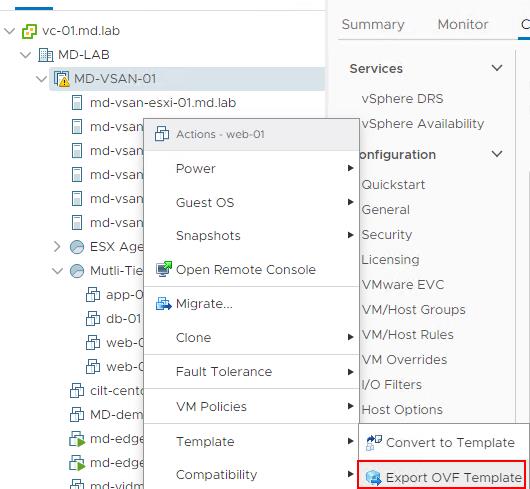
- Install urgent vmware esxi 6.7 install#
- Install urgent vmware esxi 6.7 drivers#
- Install urgent vmware esxi 6.7 Patch#
- Install urgent vmware esxi 6.7 upgrade#
- Install urgent vmware esxi 6.7 download#
The new ESXi host must correctly identify the attached VMFS datastore and you will be able to access the files on it.įollow the steps below to connect an existing VMFS storage to a new ESXi host without formatting it: In this way, you can reconnect both the physical hard disk and the LUN from the storage device (via FC or iSCSI).
Install urgent vmware esxi 6.7 install#
Therefore, the most universal way to access data on a VMFS partition of a failed server is to connect its disks to a new ESXi server (you can install ESXi on a new host in less than an hour).
Install urgent vmware esxi 6.7 drivers#
Mounting an existing VMFS Datastore on a new ESXi hostĪs you can see, in both of the above cases, third-party VMFS drivers for Linux and Windows do not allow working with VMFS 6.0.

Do not close the console window while working with files on the VMFS storage.A new disk that contains VMFS datastore available for reading should appear in the system.
Install urgent vmware esxi 6.7 Patch#
VMware Knowledge Base: Patch available for critical vSAN issue for vSAN 6.6 and 6. VMware Knowledge Base: vSAN healthcheck – Advanced vSAN configuration supported (59191) VMware Knowledge Base: VMware Cloud Foundation patch to automate workaround for VSAN in-guest data inconsistency issue (58873) LIFE IN A VIRTUAL SPACE: URGENT: VMDKs residing on vSAN 6.6 and later that have been extended may encounter data inconsistencies Real Time Services AB: Heads-up: Possible VMDK corruption on vSAN 6.6 and later!

VMware Knowledge Base: Virtual Machines running on VMware vSAN 6.6 and later report guest data consistency concerns following a disk extend operation (58715) Perform below steps to enable again in-place expansion.Įsxcfg-advcfg -s 1 /VSAN/ClomEnableInplaceExpansion Reference VSAN healthcheck – Advanced vSAN configuration supported alert may appear if advanced setting in-place expansion VSAN.ClomEnableInplaceExpansion is still disabled after patching to fixed release. Step 5: Repeat Step 4 for any other workload domains in the VMware Cloud Foundation environment. Python ondemandservice.pyc -setup-json cmd.json -domain-name MGMT Step 4: Execute below commands to run automated remediation: If the environment is VMware Cloud Foundation 3.0, switch to root user with su - command. Step 2: Log in to SDDC Manager Controller VM as root user for 2.3.2, or to SDDC Manager VM as vcf user for 3.0.
Install urgent vmware esxi 6.7 download#
Step 1: Download 58873_vcf-vsan-fix.zip file and copy it to /tmp folder on SDDC Manager Controller VM for 2.3.2 or the SDDC Manager VM for 3.0. For VMware Cloud Foundation environments that cannot be upgraded to 2.3.2.3 or 3.0.1, perform Workaround below:

Install urgent vmware esxi 6.7 upgrade#
Upgrade to VMware Cloud Foundation versions 2.3.2.3 and 3.0.1 which includes ESXi 6.5 EP9. Received notice from our TAM regarding a new critical vSAN Data Integrity issue. AlternativeĮxecute below PowerCLI script to get the cluster name, and then apply the setting across the entire cluster:įoreach ($VMHost in (Get-Cluster -Name (Read-Host "Cluster Name") |Get-VMHost)) Step 5: No reboot or service restart is required for this change to take effect, and it will become effective within 60 seconds. Step 4: Repeat this process on all ESXi hosts in the vSAN Cluster. Step 3: Run below command to confirm the value is set to 0:Įsxcfg-advcfg -g /VSAN/ClomEnableInplaceExpansion Step 2: Run below command to set the value to 0:Įsxcfg-advcfg -s 0 /VSAN/ClomEnableInplaceExpansion Step 1: Log in to ESXi host through SSH as root. VMware recommends applying the configuration changes to set the advanced setting in-place expansion VSAN.ClomEnableInplaceExpansion to 0 on all ESXi hosts that are part of the vSAN cluster including witness host in case of ROBO or stretch cluster. Workaround for vSAN on VMware Cloud Foundation 2.3.2 and 3.0 Problem: VMware announced potential in-guest data inconsistency issue happen at virtual machine disks (VMDKs) that has been extended while running on VMware vSAN 6.6, 6.7 and later storage which ships with ESXi 6.5.0d and later including vSAN 6.6 (vSphere 6.5 EP2), vSAN 6.6.1 (vSphere 6.5U1), vSAN 6.6.1U2 (vSphere 6.5U2) and vSAN 6.7.


 0 kommentar(er)
0 kommentar(er)
